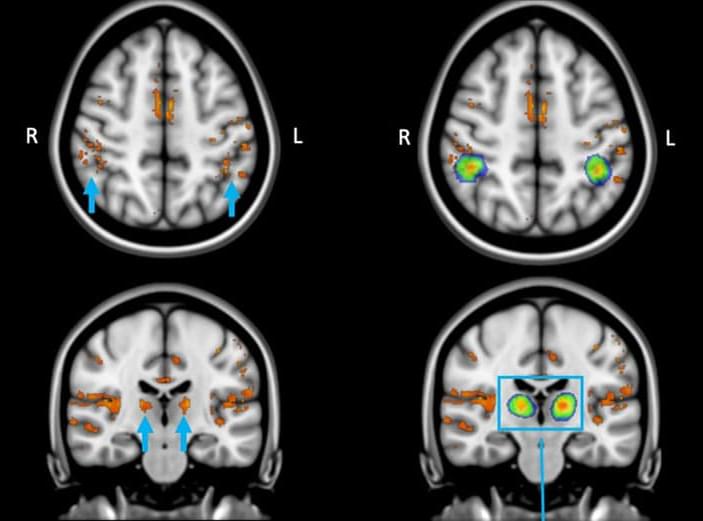Light is critical for transmitting visual information to the brain; but light also impacts non-visual processes in the body, such as circadian rhythms, hormone secretion, pupil size and sleep cycles, for example. Exposure to blue light is known to stimulate alertness and enhance cognitive performance, but the neural processes underlying this effect are not well understood. Now, researchers at the University of Liège in Belgium have used ultrahigh-field MRI to find out more about how light stimulates our brains, reporting their findings in Communications Biology.
Non-visual responses to light are mainly mediated by photosensitive retinal ganglion cells that express melanopsin, a photopigment that’s most sensitive to blue light at around 480 nm. These retinal neurons transfer light information to several areas of the brain associated with light-mediated behaviour. In particular, the pulvinar (a region of the posterior thalamus involved in attention control) is consistently activated in response to light, suggesting that the thalamus, a subcortical region, may play a key role in relaying non-visual light information to the cortex.
To investigate this hypothesis, first author Ilenia Paparella and colleagues in the GIGA-CRC laboratory used 7T functional MRI to record the brain activity of 19 healthy young participants while they completed an auditory oddball task known to elicit response in the posterior thalamus. During the task, in which random rare deviant tones were sounded amongst frequent standard tones, the volunteers were either in darkness or exposed to 30 s blocks of blue-enriched polychromatic or control orange light.










Comments are closed.